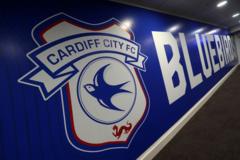Disney earnings: Streaming unit turns first profit while parks business lags

Disney (DIS) on Wednesday reported that its total streaming division turned a profit for the first time, though weakness in its parks division dented an otherwise positive report with the company noting a “moderation of consumer demand” towards the end of the quarter.
In Disney’s fiscal third quarter, its direct-to-consumer (DTC) streaming business, which includes Disney+, Hulu, and ESPN+, posted operating income of $47 million, compared to a loss of $512 million in the prior-year period. The company had previously expected to achieve total streaming profitability by the current quarter.
Overall, the company reported Q3 adjusted earnings of $1.39 per share, above the $1.19 analysts polled by Bloomberg had expected and higher than the $1.03 Disney reported in the prior year period.
Revenue came in at $23.2 billion, exceeding consensus expectations for $23.1 billion but lower than the $22.3 billion reported in the year-ago period.
Disney also raised its guidance for full-year adjusted earnings growth to 30%, up from the prior 25%.
Disney stock rose as much as 3% in premarket trade on Wednesday before forfeiting these gains. Coming into the report, Disney stock was roughly unchanged this year.
Looking ahead, Disney said it remains on track for streaming profitability to improve in the fourth quarter with both DTC entertainment, which posted a loss of $19 million in Q3, and ESPN+ expected to be profitable.
“We continue to feel optimistic about our trajectory, with multiple building blocks for improving margins over the coming years,” the company said in the release.
One of those building blocks will be new price hikes for these services. On Tuesday, the company announced it would again raise prices across its Disney+ and Hulu plans, with these changes set to take effect in October.
In the third quarter, the media giant noted a slight increase in core Disney+ subscribers, to 118.3 million from 117.6 million a year ago. Analysts had expected subscribers to remain roughly flat.
Average revenue per user, or ARPU, fell 3% to $7.74 lower for domestic Disney+ users despite recent price increases and a crackdown on password sharing.
Parks, linear business under pressure
The parks business was Disney’s main disappointment in the quarter, with domestic operating income dropping 6% from the prior year to $1.35 billion. The company warned demand moderation could continue over “the next few quarters.”
“While we are actively monitoring attendance and guest spending and aggressively managing our cost base, we expect Q4 Experiences segment operating income to decline by mid single digits versus the prior year, reflecting these underlying dynamics,” the company said in its release.
The company added that Disneyland Paris will be impacted from a reduction in normal consumer demand trends due to the Olympics, along with some cyclical softening in China. The company said it continues to see “strong” demand for its cruises.

Meanwhile, linear struggles continued with domestic linear network revenue falling 7%, dragged down by a decline in advertising revenue and lower affiliate revenue as more consumers cut the cord. Operating income within the segment dropped 1%.
ESPN bucked the downward trend, with domestic operating income for the sports giant up 1% due to growth in advertising and subscription revenue.
In February, Disney doubled down on sports streaming with the reveal of an upcoming joint venture partnership with Fox and Warner Bros. Discovery. The company is also working on a separate sports streaming platform for ESPN, set to debut in fall 2025.
Disney’s theatrical power also seems to be back on track, with strong showings from films like “Inside Out 2” and the more recent “Deadpool & Wolverine.” It’s also on pace to lead the box office in the back half of this year with the upcoming releases of “Moana 2” and “Mufasa: The Lion King.” Content sales and licensing income surged as a result, jumping to $245 million in Q3 compared to a loss of $112 million in the prior year.
Alexandra Canal is a Senior Reporter at Yahoo Finance. Follow her on X @allie_canal, LinkedIn, and email her at [email protected].
Click here for the latest stock market news and in-depth analysis, including events that move stocks
Read the latest financial and business news from Yahoo Finance








